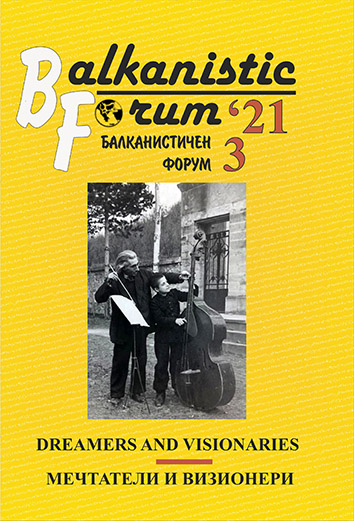The great social experiment: when dreams did not turn into reality
The great social experiment: when dreams did not turn into reality
Author(s): Marine Aroshidze, Nino AroshidzeSubject(s): Language studies, Language and Literature Studies
Published by: ЮГОЗАПАДЕН УНИВЕРСИТЕТ »НЕОФИТ РИЛСКИ«
Keywords: myth-forming function of language; symbolic universe; myth-destroying texts; informative vacuum; socio-cultural phenomenon; socialist ideology
Summary/Abstract: The great social experiment in building socialism, which was supposed to develop into communism, was based on a number of attractive political myths, for the creation of which a special symbolic universe was created, a wide range of various sign systems were involved, among which language played the most important role: as a means of creating a political myth and the means of its constant feeding (the myth-making function of the language). This allowed (in conjunction with other means of subjugating the totalitarian state) for a long period to manipulate the consciousness of the masses, educating the younger generation in the given ideological framework. However, being the most important means of creating myths, language at the same time has enormous potential for its destruction. An analysis of texts criticizing the political ideology prevailing in the Soviet empire allowed us to single out two main types of myth-destroying texts: 1) texts criticizing the existing order (anecdotes, caricatures, parodies, political fables, etc.) and 2) texts that destroy the “information vacuum» (photographic documents, archival documents, autobiographies, etc.). The artistic works of dissidents of socialist ideology (Vladimir Vysotsky, Nikolai Guberman, Alexander Solzhenitsyn, Mikhail Bulgakov, etc.), which often combined both functions, had a special appellative-influencing force.Analysis of the role of language in the creation of myth as a socio-cultural phenomenon on the example of the myths of the Soviet era in the context of modern globalization of knowledge and the interdisciplinary scientific paradigm demonstrated the semiotic mechanism of myth creation and the dynamics of their destruction.
Journal: Балканистичен Форум
- Issue Year: 30/2021
- Issue No: 3
- Page Range: 314-328
- Page Count: 15
- Language: English
- Content File-PDF

